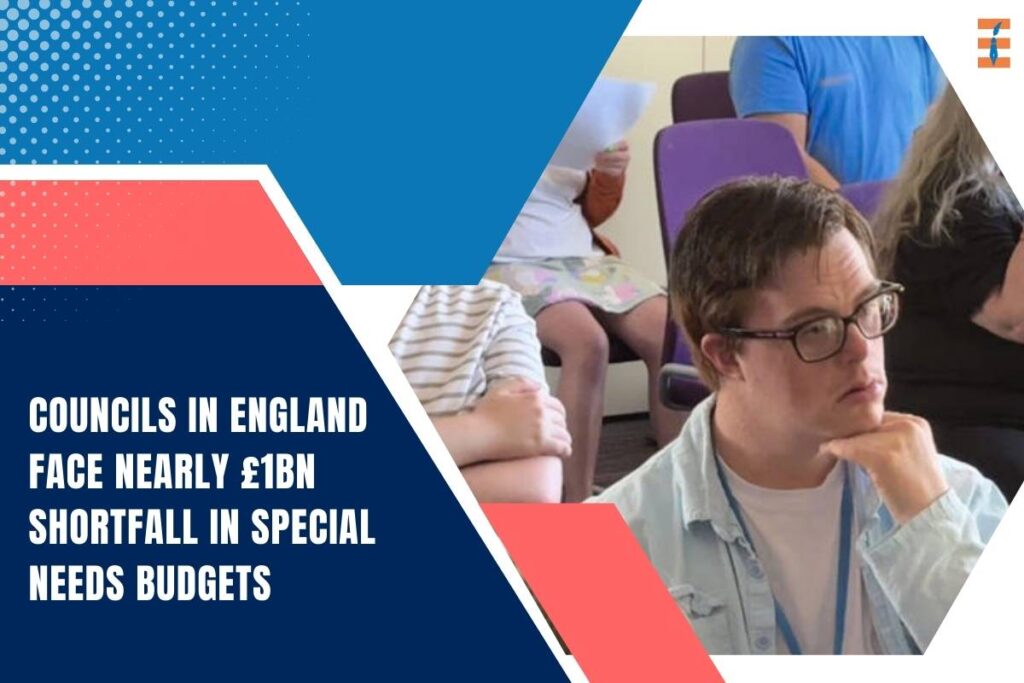Councils in England Face Nearly £1 Billion Funding Gap in Special Needs Budgets
Councils across England are predicting a nearly £1 Billion funding gap in their special needs budgets for this year. Out of 153 councils contacted by the BBC, 113 responded, revealing significant financial strain. Parents’ groups have expressed concerns that efforts to reduce deficits might negatively impact children’s support. Since 2019, the accumulated deficit for Special Educational Needs and Disabilities (Send) in England has reached £3.2 billion, according to the County Council Network. With rising demand for services and increasing pressure on council budgets, the gap between funding and spending continues to widen.
Sarah Morgan is one of many parents struggling to secure adequate support for their children. Her daughter, Isla, who is autistic, faced challenges in accessing the appropriate education despite having a place in a special school. Sarah described the process of obtaining an Education Health and Care Plan (EHCP) as overwhelming and difficult. Many parents, like Sarah, have resorted to legal tribunals to get these plans updated. Official statistics show nearly 600,000 children and young people in England now have EHCPs, with a 26% increase in new plans issued last year alone.
Financial Gaps and Bailout Agreements
The BBC’s investigation into the financial state of local authorities revealed a troubling trend. Of the councils that responded, 100 reported a collective deficit of £586 million for the last financial year, with forecasts suggesting this will rise to £926 million this year. The financial pressures have led 38 local authorities to enter into “safety valve” agreements with the government, receiving additional funding in exchange for commitments to reduce Send deficits. However, parent groups fear these measures might result in limited support for children.
Catriona Moore from the Independent Provider of Special Education Advice, a charity that assists families, noted that some councils in the safety valve program seem focused more on financial targets than on meeting children’s needs. The BBC’s investigation found that Cheshire East Council had the largest proportional shortfall, with a budget of £56 million but expenditures of £88 million for Send last year. Under a special agreement until 2026, such deficits are added to a “negative reserve,” effectively deferring the problem.
Long-Term Challenges and Solutions
Councillor Sam Corcoran, Labour leader of Cheshire East Council and deputy chair of a cross-party network representing County Councils, criticized the current system as unsustainable. He likened the financial arrangements to using a credit card that must be repaid by 2026, potentially leading to a financial crisis for councils. The Institute for Fiscal Studies reports that meeting Send needs has consumed about half of the cash increase in school spending in England since 2015, amounting to £3.5 billion.
The National Association of Headteachers has called for any new government to write off the accumulated deficits in council budgets. At Fishponds Church of England Primary in Bristol, headteacher Michelle Omaboni has observed a significant rise in children with additional needs. Bristol, currently in a safety valve agreement, faces challenges in managing spending reductions. For instance, the council provided only £81 a month for a child’s one-to-one support, while the actual cost was £140 a day.
The future funding of Send services remains uncertain. The current plans involve additional funding for councils in exchange for measures to reduce deficits, with a focus on early intervention and support in mainstream schools. However, addressing the legal rights of children, parents’ concerns, and councils’ financial constraints will be a significant challenge for the next education secretary. Despite the critical nature of this issue, none of the main political parties mentioned the £1 Billion funding gap in Send budgets in their manifestos. The Conservatives promised 15 more special schools, while Labour pledged to increase early intervention and support in mainstream schools. The Lib Dems, Greens, and Reform UK did not address Send at all.
In summary, the £1 Billion funding gap in special needs budgets is a growing concern for councils across England. With rising demand and insufficient funding, the financial pressures are mounting, leaving parents worried about the future of support for their children. Addressing these challenges will require a coordinated effort from government, councils, and the education system to ensure that the needs of children with special educational needs and disabilities are met adequately.

